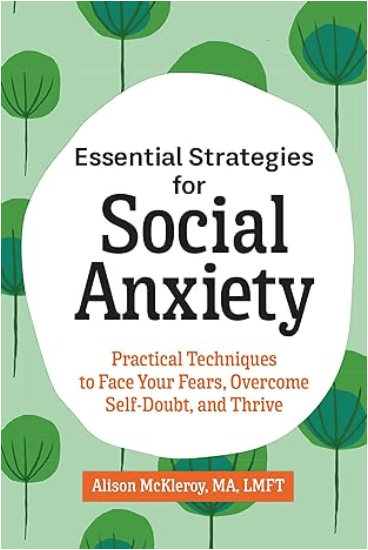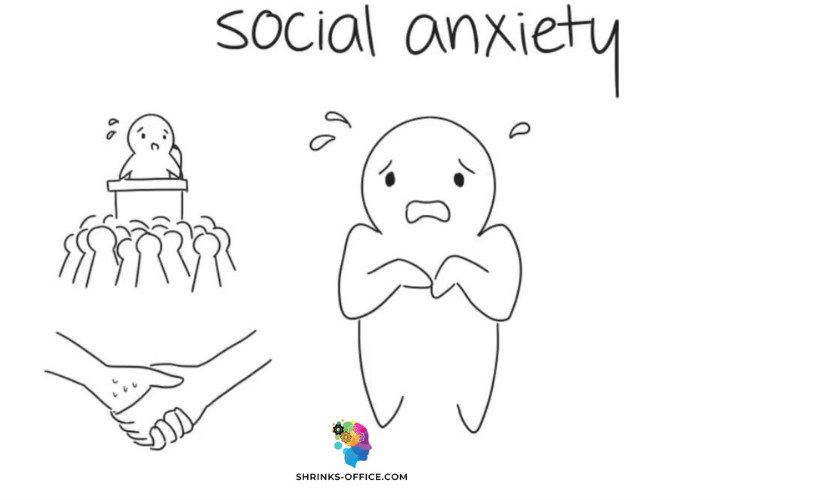How To Deal With Social Anxiety At School
Strategies On How To Overcome Love Addiction
- Talk to your child's teacher
- Foster a positive outlook at home
- Encourage your child to make friends outside of school
- Promote positive self-talk
- Teach your child relaxation techniques
- Don't put pressure on your child
Causes of Social Anxiety In School
- Negative experiences
- Low self-esteem
- Pressure to fit in
- Learning difficulties
"How can you help your child who is struggling with social anxiety at school?" Social anxiety is a debilitating mental health condition for children, particularly in a school environment filled with peers and interaction expectations.
As a parent, witnessing your child's struggle can be distressing. Fortunately, there are effective methods to assist them. We'll explore various approaches on how to deal with social anxiety at school', including communication with teachers and counselors, and developing healthy coping strategies.
7 Ways To Help Your Child Overcome Social Anxiety At School
Overcoming social anxiety can help calm physical reactions that make your child feel socially awkward in certain situations. Here are seven ways to help your kid overcome social anxiety disorder at school:

1. Talk to your child's teacher
Your child’s teacher can provide valuable insight into their social interactions in the classroom and help you develop a plan to address any issues that may arise.
Be sure to mention your child's social anxiety, so they know what to look out for.
Also, you should ask if there are any particular strategies they can use to help your child feel more comfortable in class.
The teacher may suggest activities that encourage positive interactions between students or provide an alternative way for your child to participate without putting them in an uncomfortable situation.

2. Foster a positive outlook at home
It’s essential to create an atmosphere of acceptance and understanding for your child so that they can feel safe and secure. Here are some tips:
- Model positive behavior by showing empathy, understanding, and respect when communicating with others.
- Offer plenty of praise and encouragement for efforts made and successes achieved.
- Encourage participation in activities and hobbies that your child enjoys.
- Focus on having fun together rather than pressuring your child to perform or excel in any particular area.
- Be patient and provide your child with time and space to open up and express their feelings.
- Remind them that failure is a part of life and that making mistakes is okay.
- Talk openly and honestly about your challenges and how you overcame them.
- Try to involve your child in decision-making processes and encourage them to take risks in a safe environment.
A positive outlook at home is essential for helping your child manage social anxiety at school. It allows them to feel accepted and supported, reducing fear and anxiety when interacting with peers. For more on fostering a positive environment, consider reading about hormones that cause anxiety and how to manage them.

3. Encourage your child to make friends outside of school
Making friends outside of school can be an excellent way for children with a social anxiety disorder to feel more comfortable in a social situation.
This could involve joining a local sports team, participating in group therapy or support groups at the local community center, or even finding a friend to hang out with.
Also, you can encourage your child to attend events such as birthday parties, movie nights, and other social gatherings to help them practice social skills in a safe, low-pressure setting. For more tips on making friends with social anxiety, check out How To Make Friends When You Have Social Anxiety.

4. Promote positive self-talk
Positive self-talk can help your child to build confidence and tackle their social anxiety symptoms. You can encourage your child to practice positive self-talk by praising their successes, no matter how small.
Create positive mantras they can repeat to themselves while taking a few deep breaths to reduce the anxious feelings that come randomly.
Also, remind them that it's okay to make mistakes and that it doesn’t define them. Most of all, ensure you provide them with constant love and support. They may not be able to conquer their social anxiety overnight, but with your help and support, they can learn to cope and thrive at school.
5. Teach your child relaxation techniques
Relaxation exercises are crucial for managing physical symptoms like increased heart rate and shallow breathing caused by social anxiety. [1] For more relaxation techniques, consider exploring resources on movies with social anxiety for relatable content and relaxation ideas.
Here are some activities you can teach your child:
- Physical exercise and Progressive muscle relaxation reduce the tension in the body. Ask your child to slowly tense and relax different muscle groups, starting with their feet and moving up their body.
- Guided imagery: Have your child imagine a peaceful, calming scene like a beach or forest.
- Deep breathing: Have your child take deep breaths in and out of their stomach to slow down their heart rate and help them feel more relaxed.
- Mindfulness: Help your child focus on current events and practice being mindful of their thoughts and feelings without judgment.
- Positive affirmations: Encourage your child to repeat positive affirmations to themselves, such as “I am strong” or “I am capable.”
6. Seek help from a mental health professional
If your child's social anxiety impacts their daily life, it might be time to get help from an Online Therapist. Therapists can help your child learn how to identify and challenge the negative thoughts causing them to experience social phobia.
Treatments like CBT (Cognitive Behavioral Therapy) can be very helpful for those dealing with social anxiety. During therapy sessions, the patient works together with their therapist to understand the cause of their anxiety and find ways to cope with it effectively. [2]
Through small talk and role-play, patients can practice positive thought patterns and behaviors that can replace the self-conscious ones contributing to severe social anxiety.
Additionally, they can teach your child coping skills that will enable them to manage their anxiety in different social situations and build relationships in social settings.
Furthermore, a therapist can recommend a psychiatrist that'll prescribe medication for social anxiety disorders. Your family member or child's everyday life can improve with psychological and pharmacological interventions.
7. Don't put pressure on your child
It's understandable to want your child to cope with the demands of school, but it's also important to recognize that this isn't something that can be forced.
Putting too much pressure on a child can increase anxiety rather than help them overcome it.
Instead of pressuring your child to make friends or act a certain way, encourage them to take small steps.
Allow your child to approach things at their own pace and focus on building their confidence. This may mean they need more time to adjust to new environments or try out different activities before settling in.
Sometimes children may need space and reassurance. If you are worried about your child, offering support and guidance is vital, rather than pushing them to do something they are not ready for.
Be patient and don’t set expectations – your child will eventually reach their milestones in their own time.
What causes social anxiety in school?
Social anxiety in school can be caused by a variety of factors, including:
- Negative experiences: If a student has had negative experiences with social interactions in the past, such as being bullied or rejected, it can create a fear of future social situations.
- Low self-esteem: Students with poor self-esteem may feel inadequate or inferior to their peers, leading them to avoid social situations or feel anxious when interacting with others.
- Pressure to fit in: School environments can be highly competitive, and students may feel pressure to fit in with their peers to be accepted.
- Learning difficulties: Students struggling academically may feel embarrassed or ashamed, leading to social anxiety in the classroom.
- Family or home life: Family problems or difficult home environments can also contribute to social anxiety in school. [3]
Conclusion
Social anxiety is a mental illness that can be challenging and distressing for pupils and students. However, by implementing some effective strategies, parents can help their children manage the condition and reduce its symptoms.
These strategies include encouraging them to practice mindfulness meditation, regular exercise, deep breathing exercises, including herbs in their diet, and seeking professional help if necessary.
Parents of children with social anxiety need to understand that they're not alone and that social anxiety is a common issue that many people face.
By taking these steps socially anxious individuals can feel more confident and comfortable in social situations, and enjoy their school experience.
Remember, it's okay to ask for help and support, and taking care of one's mental health is just as important as taking care of their physical health.
You can take this quick anxiety test to confirm if your child has social anxiety.
FAQ
Can social anxiety disorder be cured naturally?
While there is no known cure for social anxiety disorder, there are natural ways to manage and reduce its symptoms. These include exercise, mindfulness meditation, deep breathing, herbal remedies, and a healthy diet. Regular physical activity can help reduce anxiety and stress and boost mood. Similarly, mindfulness meditation is a technique that involves focusing on the present moment and accepting thoughts and feelings without judgment. It can help reduce anxiety.






